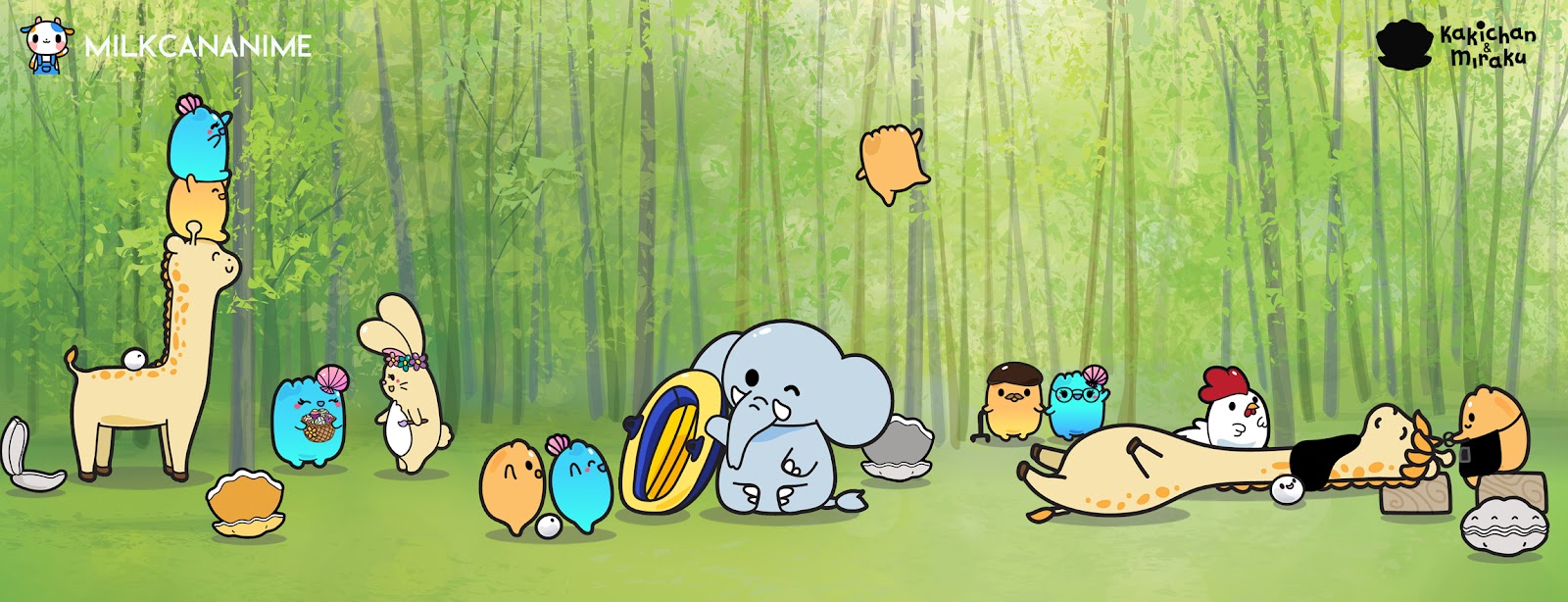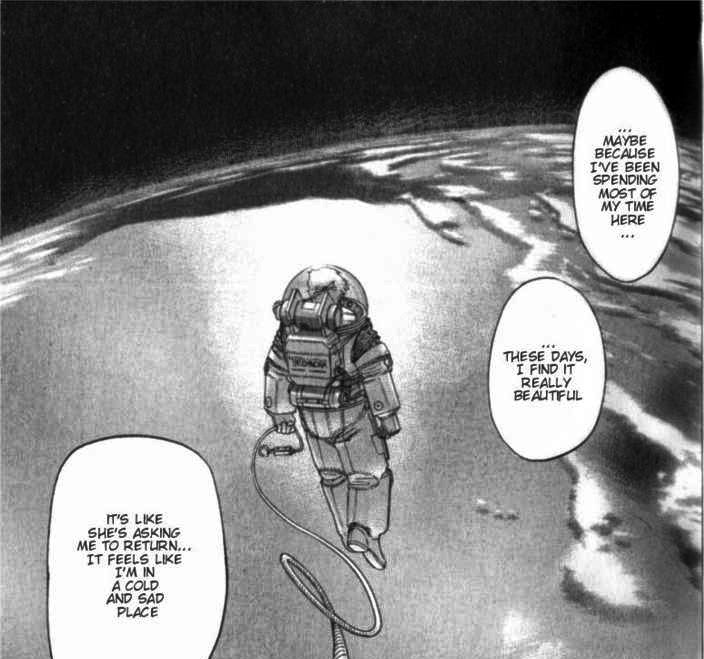To the Moon and beyond: Planetes Manga Review
I’ve always been fascinated by the ethereal, enigmatic
realms of outer space. It’s a dark and vast world out there, an infinite space
that surely holds amazing and terrifying things beyond our imagination. What
would it be like to venture into this unexplored terrain? Would you dare to
navigate and live among comets and stars?
Planetes, written and illustrated by Yukimura
Makoto in 1999, is a manga set in 2074 (Wait a minute, that’s not
exactly far off), a time when space travel has become a full-fledged, everyday
form of transport. Anybody can commute via a spacecraft.
♬ Is this the real life? Is this just fantasy? ♬
In Planetes, the human race has taken space exploration to
new heights. Not only are some of us living on the moon, we are also building
space crafts to travel to Jupiter and beyond. It all sounds very surreal and
exciting but Planetes paints a more realistic picture, tainted by the
complications of politics, morality and philosophy.
The story centres on a group of space debris collectors of
which the members consist of:
· Hachirota Hoshino, mostly referred to as “Hachi”,
a space crazy cosmonaut who dreams of owning his own spaceship
· Fee Carmichael, a tomboy who’s not afraid to
speak her mind and has gotten too used to her job
· Yuri Mihairokov, a Russian member whose kind and
laid-back personality hides a painful past
· Ai Tanabe, an energetic and compassionate girl
who is later recruited to take over Hachi’s work
The struggle is real
One of the manga's highlights is watching Fee almost accidentally kill her colleague
A recurring theme is Hachi’s struggle with balancing his
relationship with space and people. He yearns for the serenity and solitariness of
space, while falling slave to the ambition that feeds his hunger for
recognition. But in the process, he closes off his heart to love. He feels
alone, threatened and insecure in his quest to immerse himself completely in space.
The plot chronicles his journey in finding peace within himself.
Environmental issues are also a crucial element in the
story. Colonising other planets in the solar system is depicted by the space
industry as a noble endeavour, a dream shared by all mankind. However, there
are also anti-space exploration groups who protest against it. After having
depleted Earth’s resources, we are merely moving on to destroy other planets.
Also, only countries who are rich and prosperous have the means to engage in
space travel, leaving the third world countries in increasing poverty and
escalating the phenomena of economic inequality; of the rich getting richer and
the poor getting poorer.
See those 'shooting stars'? They're just debris; pieces of spaceships that crashed in space.
The Kessler Syndrome is another issue that takes centre-stage
in the plot. It occurs when satellites in orbit collide with each and create a
mass of debris. The debris created can continue colliding in a never-ending
cycle and reach a stage when the space around Earth becomes completely
impassable due to the density. In Planetes, the Kessler Syndrome threatens to arise
due to the emergence of a space war.
Technicalities aside, Planetes’s main message is simple and
powerful: We must not lose our humanity. Compassion is what will save the human
race, not fancy spaceships or planet colonization. Science is an honourable pursuit
and a mark of human intelligence but what happens when you look at it with eyes
devoid of emotion? As fascinating as space is, we cannot lose ourselves in its
darkness.
At times wistful and contemplative, and at other times awe-inspiring
and achingly emotional, Planetes is a
manga that not only enthrals through the novelty of space travel, but also touches the readers’ hearts on a
deeper level.
To sum it up...
Plot: 10/10 – Despite a somewhat short run of
four volumes, the story manages to weave in a number of sociological and philosophical
aspects and has impressive depth. Perfect storytelling and pacing, it deserves
a full ‘10’ in this section.
Art: 8.5/10 – I like the art. The mangaka is
wonderful at drawing facial expressions and has a clean style. It’s easy on the
eyes and brings the story to life.
Characters: 9/10 – Very well fleshed-out
characters that have distinctive and realistic personalities.
Personal enjoyment: 9/10 – It was an entertaining and thought-provoking read. I also loved the humor in this one. I was a little bit sad when it ended but I do think the ending was well-placed; it left some room for imagination. And we all know that’s the mark of a good ending: When enough questions have been answered so that there’s a sense of closure, but leaves a little bit of mystery to keep you wondering what happened after the last page.
Personal enjoyment: 9/10 – It was an entertaining and thought-provoking read. I also loved the humor in this one. I was a little bit sad when it ended but I do think the ending was well-placed; it left some room for imagination. And we all know that’s the mark of a good ending: When enough questions have been answered so that there’s a sense of closure, but leaves a little bit of mystery to keep you wondering what happened after the last page.
Overall rating: 9/10 – Perfect for anybody who
is captivated by space or exploring the unknown. That’s pretty much everybody,
right? Yes, I’m recommending it to everybody. After all, there is a reason why it won the prestigious Seiun Award in 2002.
Written by Faelan











No Comment to " To the Moon and beyond: Planetes Manga Review "